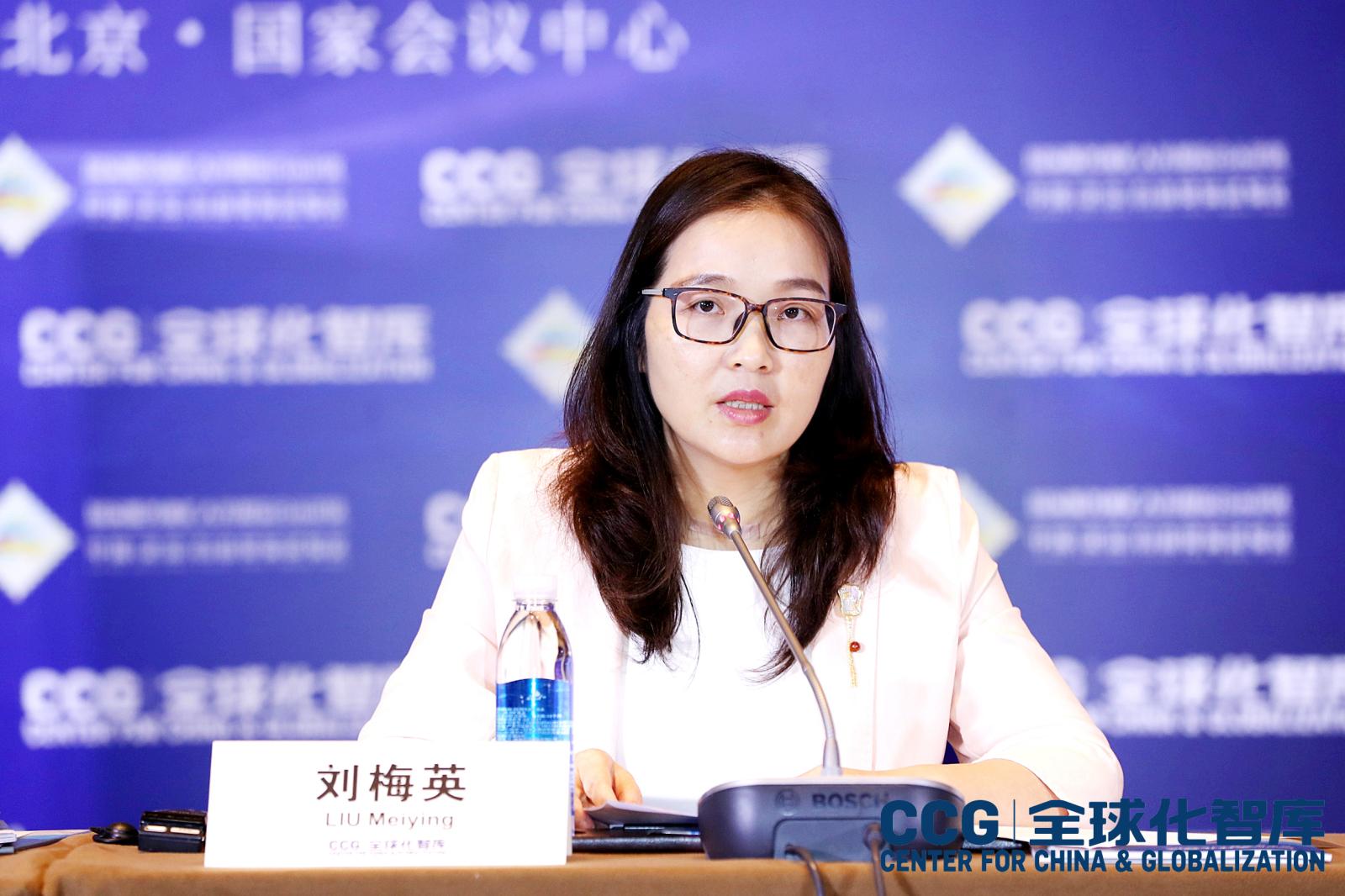CIFTIS: Beijing targets higher-level opening-up in industries, factors of production
- By Zhu Bochen
 0 Comment(s)
0 Comment(s) Print
Print E-mail China.org.cn, September 6, 2023
E-mail China.org.cn, September 6, 2023

Liu Meiying, dedicated deputy director-general of the Beijing Municipal Leading Group Office for "Two Zones," speaks at a sideline event of this year's CIFTIS in Beijing, Sept. 4, 2023. The event was co-hosted by the Center for China and Globalization (CCG) and the Beijing Municipal Leading Group Office for "Two Zones." [Photo courtesy of CCG]
After years of efforts to advance trade in services and develop its free trade zone, Beijing municipal authorities are now making greater strides to boost openness in various industries, streamline the flow of factors of production and improve the business environment for overseas companies.
Liu Meiying, dedicated deputy director-general of the Beijing Municipal Leading Group Office for "Two Zones," introduced the city's latest institutional opening-up measures during a sideline event at the ongoing 2023 China International Fair for Trade in Services (CIFTIS).
According to Liu, Beijing has further expanded opening-up in sci-tech innovation, finance, biomedicine and specialized services, and will facilitate the establishment of foreign-funded R&D centers by providing funding of up to 50 million yuan. The city is also committed to broadening market access for overseas financial enterprises, and ensuring their business operations in the city.
Furthermore, the city is piloting a whitelist system for the import of materials for biomedical research, and gradually lifting restrictions on patent agencies and arbitration institutions.
To ensure unimpeded movement of factors of production, Beijing is working to improve the system of rules for data trading, streamline the cross-border flow of capital and optimize the express channels for the pre-examination of patent authorization.
An inclusive business environment is further taking shape in Beijing, and we plan to roll out more measures offering overseas talent and enterprises greater convenience. We will introduce a one-stop system for business-related government services, further normalize the communication mechanism between the government and foreign companies, and offer more convenience for Foreign Permanent Resident ID Card holders.
Since the inception of Beijing's "two zones" initiative - namely, the pilot free trade zone and the national comprehensive demonstration zone for expanding opening-up in the service sector - significant advancements have been made in opening up the city to the global community. Notably, the actual utilization of foreign capital has reached a total of $55.14 billion., with the establishment of 5,367 newly registered foreign enterprises across the city.
To date, almost 98% of the 251 tasks outlined by the State Council for the construction of the "two zones" have been implemented. In addition, Beijing has also introduced more than 10 special reform plans and nearly 500 related measures, with 40 innovations being replicated and promoted throughout the rest of the country.
In 2022, Beijing's service industry achieved an added value of 3.5 trillion yuan, accounting for over 80% of the city's GDP, a rate that has been maintained for seven years.
Also speaking at the sideline event was Geraldine McCafferty, deputy head of mission at the British Embassy in Beijing. She said, "I hope that the Beijing 'two zones' initiative can be a significant role model in the opening-up and boosting of trade in and with China."





